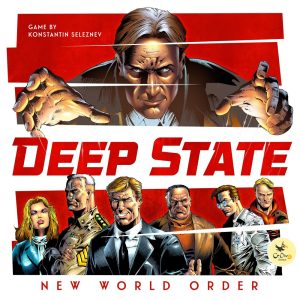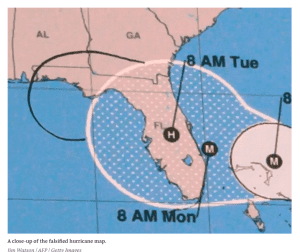
Maybe the less that’s known about this the better, since it could be intimidating, but it’s unlikely to be used for two years any way, and even when the Republicans had the power to use it before they couldn’t, but I think it’s relevant to discussions we sometimes have about the “political” nature of federal agency decisions. This would be that on steroids. I’ve excerpted much of this Washington Post article:
GOP revives rule allowing lawmakers to target federal agencies, staffers
The rules package House Republicans approved late Monday (January 9) includes a provision allowing lawmakers to reduce or eliminate federal agency programs and to slash the salaries of individual federal employees.
Called the Holman Rule, the measure was proposed in 1876 but was sparingly used until it was reinstated by Republicans in 2017 and then dropped by Democrats two years later. In theory, it could apply to any federal worker or agency — but for now the move is seen as mostly symbolic, as the Democratic Senate could block Republicans from using the provision.
The rule is named for a House member who proposed it nearly 150 years ago as an exception to the general practice of keeping policy decisions separate from spending decisions
One attempt … in 2018, would have reduced to $1 the pay of a federal employee in charge of an office that had been the subject of whistleblower complaints; opponents called the move an attempt to punish without due process one individual who was involved in a wide-ranging dispute.
Even if an attempt to use the rule is ultimately blocked, though, “It’s the potential use that makes it so concerning,” said Max Stier, president and CEO of the nonpartisan Partnership for Public Service. “If you’re a federal employee, this now becomes a risk that you have to think ‘I may get myself in hot water or have my salary dropped to zero or my job could get axed’” when making a professional decision.
“Symbols can cause harm. We need a workforce that is committed to the public good and feels safe to make that choice. That’s what’s at risk here,” he said.
Republicans have embraced the Holman Rule as part of the party’s aggressive stance toward the federal government, including President Donald Trump’s attempts to create new job classifications that would make it easier to fire government workers and his decision to move federal agencies like the Bureau of Land Management out of D.C.
During the House floor debate, Rep. Kat Cammack (R-Fla.), an ally of House Speaker Kevin McCarthy (R-Calif.), blasted federal officials as “unelected bureaucrats, the true, real swamp creatures here in D.C.,” saying they had “run roughshod over the American people without consequence.”
Democrats and union leaders, though, denounced the rule’s revival as an opening for the GOP to attack federal agencies and the people working in them for political reasons. Democrats warned that Republicans could abuse the power to lessen federal workers’ salaries or fire them outright — particularly at a time when the government is investigating former president Donald Trump.
Republican backers on Monday, though, said that reinstating the rule would provide an important check on the federal government.Rep. Chip Roy (R-Tex.) — a member of the conservative House Freedom Caucus — said the Holman Rule would “restore the people’s House” in the face of administrative action.
“I think it’s another intimidation tool for civil servants who are simply doing their job,” said Rep. Gerald E. Connolly (D-Va.) in an interview. “It is designed to provide a chill effect on the ability of civil servants to do their jobs and carry out enforcement regulations and compliance with the law.”
“The whole point of it is to use it recklessly. There’s no way to use it responsibly,” said the public policy director of the American Federation of Government Employees, Jacqueline Simon. “It goes around everything that protects the civil service from political corruption — not just federal employees but entire agencies.”

Jon,
I actually thought this was funny. The bill is going nowhere.
“Symbols can cause harm. We need a workforce that is committed to the public good and feels safe to make that choice. That’s what’s at risk here,” he said.”
So now all non-passing bills are to be examined for their symbolic value? Because it seems to me that both sides put up silly non-passable bills for theatric purposes.
And since you used the term “deep state” exactly what do you mean by it?
I think anything that could constitute intimidation deserves exposure. In this case, this is not a bill. Instead, this is a rule that has been adopted that allows bills to be submitted attacking individuals. Whether or not those bills are likely to pass, do you think any civil servant will think it is funny to be the marquee name on such a bill?
“As the Trump era has unfolded, the term “deep state” has come to mean something sinister to some on the far right. More than just signifying an impersonal, inept bureaucracy, it conjures a secretive illuminati of bureaucrats determined to sabotage the Trump agenda. “https://www.govexec.com/feature/gov-exec-deconstructing-deep-state/
So.. here’s what I think about that. Many or most federal employees tend to be Ds. Many folks including me did not like Trump’s policies in general (although, frankly it was hard to develop much antipathy for appointees like Jim Hubbard). They obviously did not support those policies. Did they “sabotage” the agenda? What exactly would that look like?
If we leave out the emotion words… “sinister” “illuminati” “impersonal, inept” etc., we have to ask the question “do federal employees tend to throw up more roadblocks to policies they don’t agree with?” I’d say yes. It seems to me that fair-minded people could have a discussion of these natural tendencies and what they might mean without invoking the far right.
In fact, this kind of reminds me of “take the most extreme views of the other party and make fun of them” rather than “Is there some truth to their claims or ideas? Why do they think that?” It’s difficult on TSW because I don’t think we have far-right people here but even I can understand why some people think that.
To the extent there is some truth to it, it is probably a good thing. It keeps federal agencies from spending too much time digging holes and filling them in again when an administration changes – allowing some progress to be made. (I think we’ve had some discussions about how the professional staff moderates the political influence of both parties on the Forest Service.) The problem is from those who turned these seeds of truth into a fake monster we have to kill.
Sort of along the same lines (of hostility towards federal employees): https://thehill.com/homenews/house/3840064-house-passes-bill-to-end-coronavirus-era-telework-policies-for-executive-agencies/
“Comer, the chairman of the House Oversight and Accountability Committee, argued the legislation “offers a much-needed solution to this problem of federal agencies and federal employees putting their own comfort before our constituents’ needs.””
This is the same arena as the original post regarding the “Holman Rule.” This is about “Schedule F,” which is something the Trump Administration attempted at the end of his term. Apparently the Biden Administration is taking this kind of threat to Civil Service employees seriously. Portions quoted from – https://www.washingtonpost.com/politics/2023/09/15/biden-trump-federal-workers/?utm_campaign=wp_post_most&utm_medium=email&utm_source=newsletter&wpisrc=nl_most
“The Biden administration proposed a new rule Friday seeking to bolster protections for federal workers, an explicit attempt to thwart plans by former president Donald Trump and his allies to replace career government officials with political loyalists should he be reelected.
The rule seeks to halt any attempt to gut the foundation of the federal civil service, whose 2.2 million career employees serve any occupant of the White House without regard to partisanship — and have rights to due process at every level.
In the waning days of his administration, Trump tried to subvert those principles with a sweeping executive order that stripped job protections from employees in policy roles across the government. President Biden revoked that executive order on the third day of his presidency, and the new rule Friday seeks to further protect those officials.
The Trump directive, known as Schedule F, allowed his administration to weed out thousands of career federal employees viewed as disloyal by changing their status to at-will workers who could be fired without due process. The executive order was the product of a four-year campaign by conservatives to bring to heel what they called a “deep state” of bureaucrats who were resistant to the policies of the Trump White House.
Schedule F amounted to the most significant assault on the nonpartisan civil service in its history. Civil service experts and union leaders assailed it as an effort to impose political loyalty tests on a nonpartisan workforce, but Trump allies said it was the workforce that had shown partisanship by defying his policies in key areas of the government.
It is not just Trump who has called for major changes to the federal workforce. In August, Florida Gov. Ron DeSantis (R), who is also running for president, pledged at an event in New Hampshire to “start slitting throats” in the bureaucracy, rhetoric that was denounced by unions that represent federal workers. GOP presidential candidate Vivek Ramaswamy said in a policy speech this week that he would fire more than 75 percent of the federal workforce and shut down entire agencies, among them the Department of Education, the FBI and the Nuclear Regulatory Commission.”
I think Trump confused “partisanship” with “professionalism” (see the cartoon above).